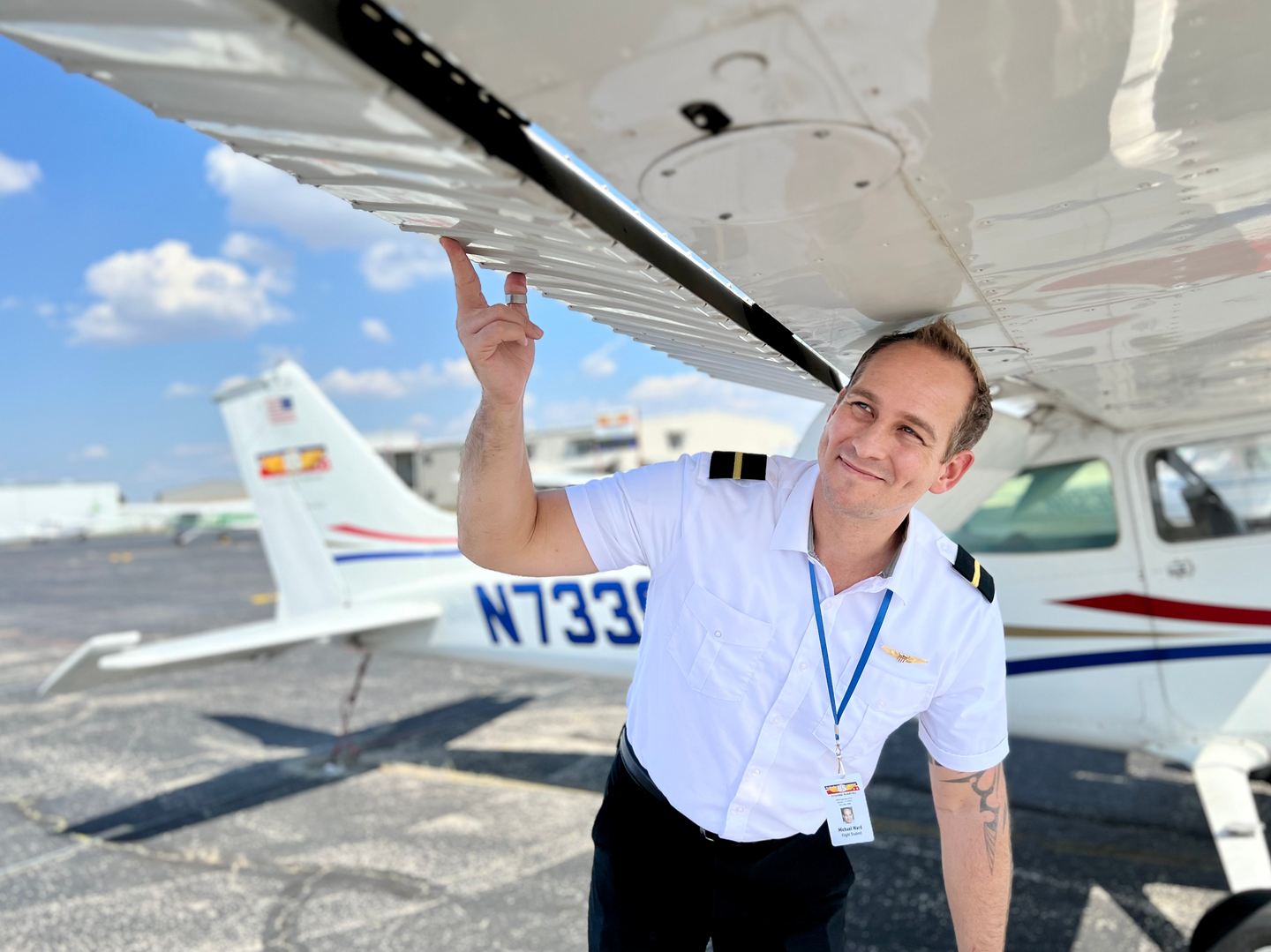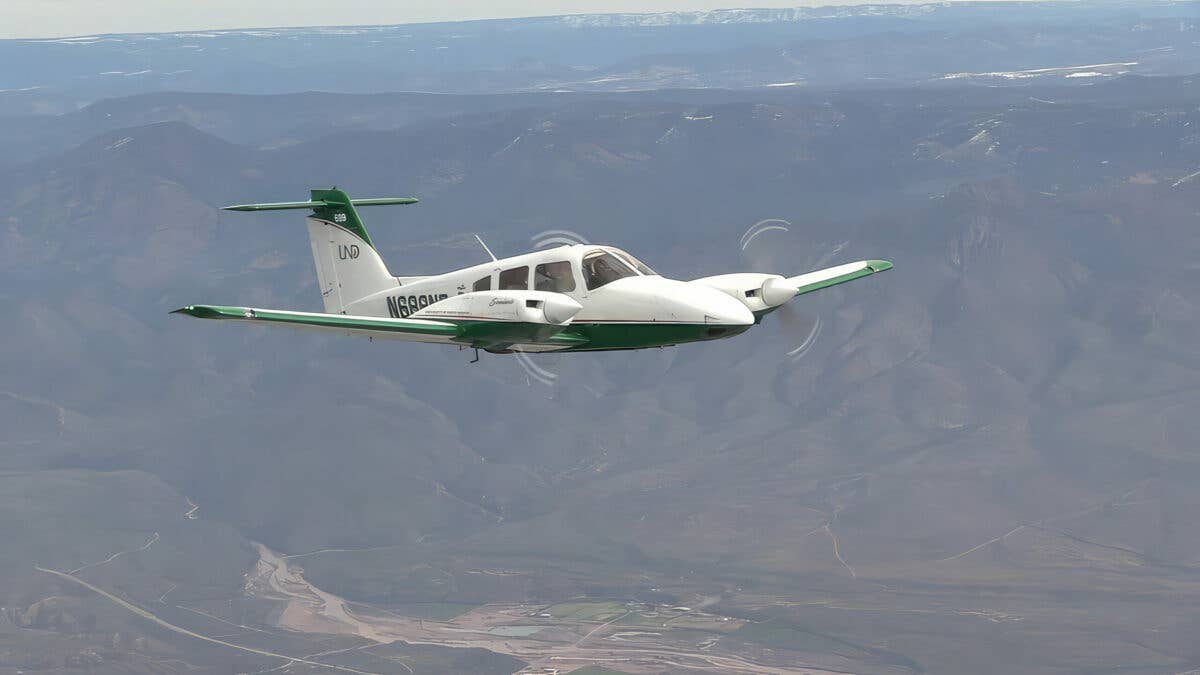Surviving Cancer as a Pilot
A cancer diagnosis introduces a level of complexity to the FAA medical certification process that you likely have not experienced before.

The future of flying after cancer can look challenging. [Bigstock]
Cancer. Few medical diagnoses carry the emotional shock value of that one word attached to any of its various forms. And with good reason. Even as cancer treatments and survival rates continue to improve, cancer—second only to heart disease—remains the dominant killer in the United States1.
As sobering as that might be, advances in cancer diagnosis and treatment techniques are constantly improving. Survival rates for cancers in general have been improving steadily since the 1970s2, while those for certain types of leukemia have more than doubled over the same period3.
Is Flying After a Cancer Diagnosis Safe?
For many, surviving cancer massively changes their priorities. In the wake of treatment, people often find the willpower to quit smoking, and reapplying sunscreen suddenly seems much less inconvenient. So, what should pilots know about cancer risk and flying?
Most experts seem to think that cosmic radiation at the higher reaches of the atmosphere is responsible for a large portion of the increased cancer risk in aviation. Hormonal changes associated with disrupted sleep patterns and fatigue may also contribute to breast and prostate cancer risk. Some have even suggested the possibility that certain brain tumors could occur more frequently4. Those factors probably do not apply to 100-hour-per-year general aviation pilots in the same way they do to airline pilots.
There is still a lot to be answered. What we know for sure is that the risk of melanoma and other skin cancers is about two to three times higher in all pilots, and female aviators, based mostly on data collected from flight attendants, are about 50 percent more likely to be diagnosed with breast cancer5. Prostate cancer in men6 along with Non-Hodgkin lymphoma and some brain cancers may also occur more frequently, but the association is less clear.
Flying After Cancer Treatment
For pilots who want a medical certificate, beating cancer is just the beginning. Whether you are a professional who needs a medical certificate to sustain your livelihood or a recreational pilot who recognizes flying an airplane as an expression of truly living, maintaining your FAA medical certificate after any cancer diagnosis introduces a level of complexity to the medical certification process that you likely have not experienced before.
Describing all the nuances of that process in a single article would be impossible. To begin with, the term cancer itself applies to a wide variety of abnormal cell growth that can affect just about every kind of tissue and organ system in the body.
Each one carries with it a different risk of recurrence and has different implications for how it might affect the safety of flight. Basal cell carcinoma is a superficial skin cancer that is most often cured with a single surgery. More aggressive malignancies often require complex surgeries along with radiation and chemotherapy. Lumping them together would defy even the most determined efforts.
Common FAA Procedures for Common Cancers
For some of the most common types of cancer that have well-established treatment guidelines, the FAA has streamlined the process. In fact, there are seven different forms of cancer that have been included in the list of Conditions AMEs Can Issue (CACI). For pilots with a history of cancer involving the bladder, breast, colon, prostate, kidney, testicles, or skin, the Aerospace Medicine Certification Division (AMCD) of the FAA has issued a detailed set of criteria that allow AMEs to issue certificates without waiting for an agency determination.
Each condition has its own set of specific criteria, but some common considerations apply:
- You must be complete with active treatment.
- You must have no history of recurrent or metastatic disease.
- If you had surgery, you must be off all related pain medications and cleared to resume normal activity by your surgeon.
- Your doctors feel that your condition is stable and no additional treatments are planned.
You still need to make sure you meet all the criteria for your specific diagnosis and properly prepare for your appointment, but if those conditions apply to you, there is a good chance your AME can issue your certificate on the day of your exam.
General Guidelines for Less Common Conditions
For cancer that involves other organ systems, or when it has spread to more than one part of the body, the process is more involved. While the FAA has not published set guidelines, a general rule is that to be considered for a medical certificate, you must:
- Be cancer free for five years or more.
- Any radiation or chemotherapy used for treatment must have ended.
- The doctors responsible for your cancer treatment and your primary care physician must also submit current status reports that attest to your overall health and cancer remission.
Depending on your circumstances, you will need to supply additional information unique to your own history. The five-year waiting period can also be reduced in some cases. The major point is that if you’ve had a rare malignancy, recurrence or metastatic disease, you will most likely have to wait a significant period of time before you can qualify for a medical certificate.
What About BasicMed?
If you’re not a professional pilot, skipping your AME appointment and flying under BasicMed is another option. If you’re flying within the U.S. at less than FL 180 with fewer than six passengers aboard, BasicMed provides an alternative to traditional medical certification that may suit your mission well. You will also need to stay below 250 knots, but for recreational pilots, that’s a restriction most only fantasize about exceeding.
Strange as it may seem, cancer does not exclude pilots from using BasicMed. FAR 61.53 still prohibits you from flying with a known “medical deficiency,” but if you feel you are safe to fly after an honest self-assessment and your doctor agrees with your position, BasicMed may provide an expedient way to continue flying.
Getting Back in the Air When Life Is Back to Normal
The important thing to remember is that being a cancer survivor does not automatically mean the end of your flying career. For the CACI cancer conditions, it might not even delay your FAA medical certification.
If you do not meet the criteria for a CACI, but you feel you can still fly safely after a discussion with your doctors, there is still a good chance that the FAA will grant your certificate. The agency’s medical certification policies are much more permissive than many pilots realize. The hard part is dealing with its bureaucracy.
Once you think it is appropriate to start flying again, make sure to do your homework before scheduling an appointment with an AME. Not all AMEs will be familiar with complex certifications, and submitting the right documentation upfront can speed up the process by months or more.
References

Subscribe to Our Newsletter
Get the latest FLYING stories delivered directly to your inbox

![[PILOT AND SNELLEN CHART PIC]](https://www.flyingmag.com/uploads/2022/11/2022-FlyingMag.com-Native-Advertising-Main-Image--scaled.jpeg?auto=webp&auto=webp&optimize=high&quality=70&width=1440)




